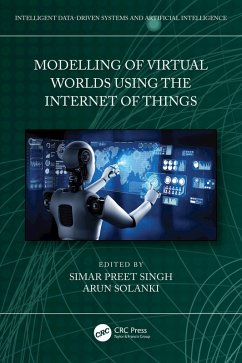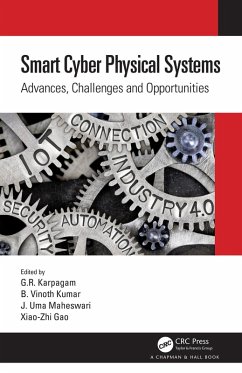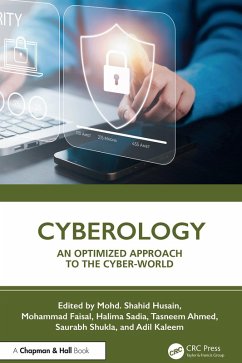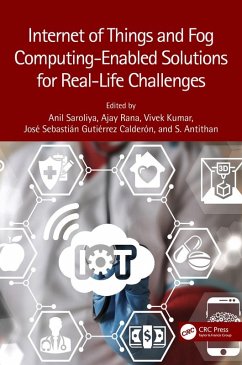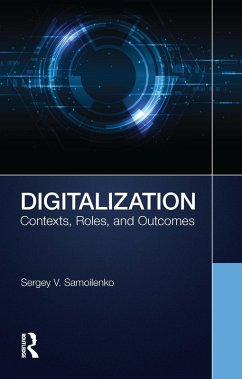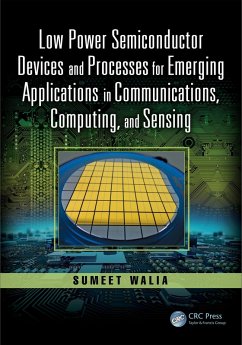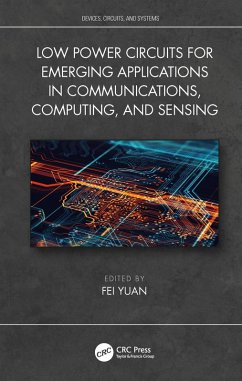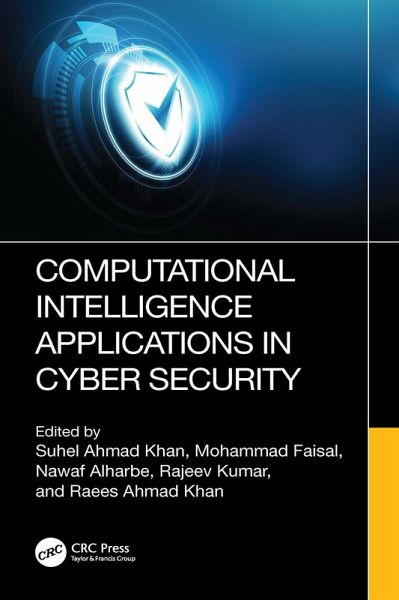
Computational Intelligence Applications in Cyber Security (eBook, ePUB)
Versandkostenfrei!
Sofort per Download lieferbar
55,95 €
inkl. MwSt.
Weitere Ausgaben:

PAYBACK Punkte
28 °P sammeln!
The book provides a comprehensive overview of cyber security in Industry 5.0, data security in emerging technologies, block chain technology, cloud computing security, evolving IoT and OT threats, and considerable data integrity in healthcare. The impact of security risks on various sectors is explored including artificial intelligence in national security, quantum com-puting for security, and AI-driven cyber security techniques. It explores how cyber security is applied across different areas of human life through computational modeling. The book concludes by presenting a roadmap for securing...
The book provides a comprehensive overview of cyber security in Industry 5.0, data security in emerging technologies, block chain technology, cloud computing security, evolving IoT and OT threats, and considerable data integrity in healthcare. The impact of security risks on various sectors is explored including artificial intelligence in national security, quantum com-puting for security, and AI-driven cyber security techniques. It explores how cyber security is applied across different areas of human life through computational modeling. The book concludes by presenting a roadmap for securing computing environments, addressing the complex interplay between advanced technologies and emerging security challenges, and offering insights into future trends and innovations for sustainable development.
This book:
. Analyzes the use of AI, support vector machines, and deep learning for dataclassification, vulnerability prediction, and defense.
. Provides insights into data protection for Industry 4.0/5.0, cloud computing, and IoT/OT, focusing on risk mitigation.
. Explores block chain's role in smart nations, financial risk management, and the potential of quantum computing for security.
. Examines AI's applications in national security, including India's AI strategy and securing smart cities.
. Evaluate strategies for data integrity in healthcare, secure IoT platforms, and supply chain cyber security.
The text is primarily written for senior undergraduate, graduate students, and academic researchers in the fields of electrical engineering, electronics and communication engineering, computer engineering, and information technology.
This book:
. Analyzes the use of AI, support vector machines, and deep learning for dataclassification, vulnerability prediction, and defense.
. Provides insights into data protection for Industry 4.0/5.0, cloud computing, and IoT/OT, focusing on risk mitigation.
. Explores block chain's role in smart nations, financial risk management, and the potential of quantum computing for security.
. Examines AI's applications in national security, including India's AI strategy and securing smart cities.
. Evaluate strategies for data integrity in healthcare, secure IoT platforms, and supply chain cyber security.
The text is primarily written for senior undergraduate, graduate students, and academic researchers in the fields of electrical engineering, electronics and communication engineering, computer engineering, and information technology.
Dieser Download kann aus rechtlichen Gründen nur mit Rechnungsadresse in A, B, BG, CY, CZ, D, DK, EW, E, FIN, F, GR, HR, H, IRL, I, LT, L, LR, M, NL, PL, P, R, S, SLO, SK ausgeliefert werden.





